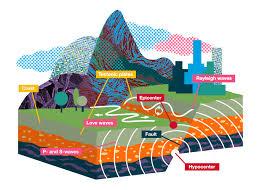Earthquake: Causes and Effects
An earthquake can cause all sorts of damage to infrastructure and human life. The most widespread form of damage caused by earthquakes is building collapse.
An earthquake is one of the most terrifying natural disasters a person can experience. They can occur anywhere in the world and often lead to loss of life and damage to property. In this blog post, we will explore the causes and effects of earthquakes. We will also look at some ways to protect yourself from these destructive events.
Causes Of Earthquake
Earthquakes are generally caused by a mismatch in the earth’s crust. Several causes have been linked to disturbed equilibrium or isostatic imbalances in the earth’s crust.
Natural Reasons
The Few most common natural reasons are:
- Volcanic Eruptions: When magma and ash escape from the volcano, it often results in an earthquake. The molten rock that comes out during a volcanic eruption can cause the nearby plates to move, resulting in an earthquake.
- Isostatic Adjustments: Isostatic adjustments are changes in the level of the ground due to the removal or addition of material. This can be caused by things like erosion, sedimentation, or glacial melt. When the weight on a certain area is removed, it can cause the ground to rebound and this can create an earthquake.
- Tectonic Plate Movements: Earthquakes can also be caused by the movement of tectonic plates. The Earth’s crust is made up of several large plates that are constantly moving. When two plates collide, it can cause an earthquake. Earthquakes can also happen when a plate slides under another plate. This is called a subduction zone.
- Gaseous expansion and contraction inside the earth: As the earth’s temperature changes, the rocks expand and contract. This can create a lot of stress on the rocks and cause them to break, resulting in Earthquakes.

